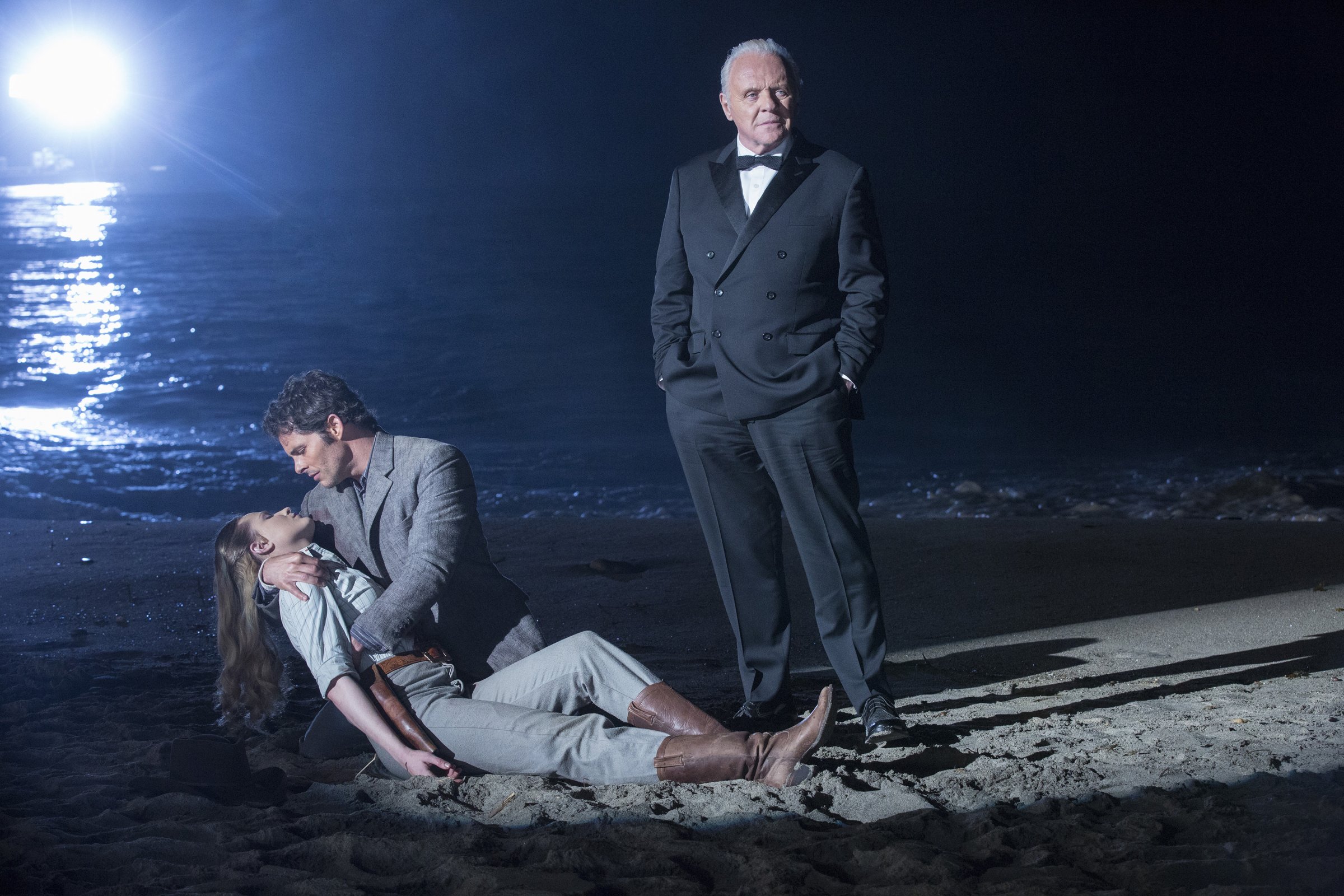
Westworld began, and ended, its first season as one of the most promising dramas on television. But even after a spectacular finale, the show has not yet transcended that promise. Like Dolores Abernathy still on the cusp of selfhood, it hasn’t yet risen from potentially great to great.
The final episode felt, to its credit, as comfortingly right as a lock smoothly turning in a door. We’d been building all season to the moment in which the robots at their futuristic theme park rebel against their maker—and Dolores (Evan Rachel Wood), the bot who took down Dr. Ford (Anthony Hopkins), has been a particularly riveting character. When the flickers of real consciousness in her burst into fiery rage, it’s compelling and gratifying the way little else this season has been.
Which isn’t to say the show hasn’t been trying to give similar shock and satisfaction all along. It’s just shown a remarkable lack of curation in its heavy-handed use of twists and reveals. We’d barely gotten to know these characters or the world they inhabited before the show insisted that we follow a mystery plot, one whose stakes seemed vanishingly low if we weren’t going to get any more reason to care about the characters. And for a show notionally invested in what it means to be human, too many characters seemed used mainly for narrative trickery. With the Man in Black (Ed Harris), the show also heavily signaled the use of multiple timelines without explicitly making clear that’s what it was doing, a pointless bit of wheel-spinning that was only satisfying to viewers who like to feel good about being ahead of the story.
Sure, the Man in Black was also necessary to give Dolores some of her motivation—his withering, with age, into the cruel and petty man she loathes helps convince her that humanity isn’t worth saving, let alone obeying. But the show consistently took the roundabout way of getting to fairly obvious rhetorical or story points, so much so that Dolores taking up arms felt tinged with retroactive annoyance. Finally, we were getting somewhere. After all, it wasn’t hard to see where Westworld was headed in the larger sense: A story about artificial intelligence growing surly and disaffected with human commands really can only move in one direction, Terminator territory. And most of what was happening on the show’s margins—a scrimshaw of timelines and reveals about secret robots—seemed designed to forestall the show’s dealing with the real questions at its heart.
The show is being made at a unique moment in TV history, one in which ultra-ambitious dramas are given the time and space by networks such that we can presume they’re working towards an endgame rather than being thrown together on the fly. While Westworld would not exist at all without HBO’s support (and its hope that by giving the creators leeway to work, they’ll end up with another Game of Thrones-sized hit), it feels at times indulged—too entranced with mysteries that are less surprising or complex than they appear, and too willing to fritter away time on the marginalia that will fuel fan theories but not real insight. A version of this show with the improvisation dialed up even 10 percent would be one that felt infinitely more alive.
Still, there are big, bold questions about the nature of the soul at the heart of Westworld, and I’m delighted the finale started addressing them. Dolores’s face as she fired off shots at the assembled crowd in the episode’s final moments was riveting—was her steely gaze the expression of a person feeling scorn and disdain blossoming darkly within her? Or was it, too, mere programming? Questions like these are the puzzles I’m eager to see Westworld piece together in future seasons.
More Must-Reads From TIME
- Dua Lipa Manifested All of This
- Exclusive: Google Workers Revolt Over $1.2 Billion Contract With Israel
- Stop Looking for Your Forever Home
- The Sympathizer Counters 50 Years of Hollywood Vietnam War Narratives
- The Bliss of Seeing the Eclipse From Cleveland
- Hormonal Birth Control Doesn’t Deserve Its Bad Reputation
- The Best TV Shows to Watch on Peacock
- Want Weekly Recs on What to Watch, Read, and More? Sign Up for Worth Your Time
Contact us at letters@time.com